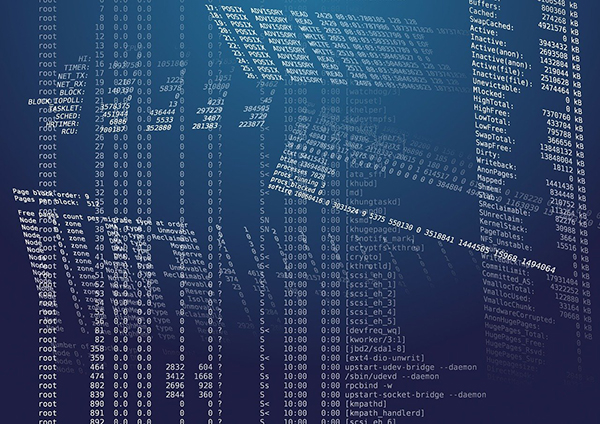The Coding Challenge (UKCC)
The Coding Challenge (UKCC)
Full upgrade of the Oxford University Computing Challenge (OUCC)
Five difficulty levels: A, B, C, D and E
Suitable for Grade 1-12 students
No requirements for programming language in Level A and B
Date: May 10, 2026 (Sun.)

Introduction
The Coding Challenge (UKCC) has replaced the Oxford University Computing Challenge (OUCC) in the UK, offering a fully upgraded program focused on fostering students' computational thinking skills. The UKCC is divided into five levels based on difficulty, catering to students from Grades 1 to 12. Participants in Grades 1-8 can join without prior programming knowledge, while Grades 9-12 require programming experience. The challenge aims to enhance students' skills, build their confidence, and inspire them to develop programming solutions using computational thinking in the future.
The Coding Challenge (UKCC), along with British Informatics Olympiad (BIO), stands as part of the United Kingdom Computational Thinking Challenges (UKCT Challenges), an organization dedicated to advancing computational thinking and programming education in the UK. Official Website: https://ukctchallenges.org
Challenge Rules
Language
Level A: Grade 1-6, Chinese & English
Level B: Grade 7-8, Chinese & English
Level C: Grade 9-10, English
Level D: Grade 11, English
Level E: Grade 12, English
Date
- May 11, 2025 (Sun.)
Level A/B: 14:00-14:45 (45mins)
Level C/D/E: 15:00-15:45 (45mins)
Location
Online (Computers and mobile devices with cameras required)
Age group
Level A: Grade 1 - 6
Level B: Grade 7 - 8
Level C: Grade 9 - 10
Level D: Grade 11
Level E: Grade 12
Note: Lower levels can participate in higher levels, but higher levels cannot participate in lower levels.
Programming Language
Level A/B: All tasks are block-based drag-and-drop (no prior programming experience required)
Level C/D/E: All tasks are text-based (programming language required)
* Block-based tasks use visual code blocks (no programming language needed), focusing on developing computational thinking for younger students. Text-based tasks further enhance computational thinking while practicing programming language skills.
* Supported programming languages for Levels C/D/E: https://www.bebras.uk/index.php?action=content&id=136
Awards
Reward by different levels
• Perfect Score
• High Distinction: Top 10%
• Distinction: Top 25%
• Merit: Top 50%
Content
| Level A | Level B | Level C | Level D | Level E | |
| Grade | Grade 1 - 6 | Grade 7 - 8 | Grade 9 - 10 | Grade 11 | Grade 12 |
| Technique | Block based | Text based | |||
| Programming Level | New to block - based programming | Experienced block - based programmers | New to text - based programming | Developing text - based programming | Experienced text - based programming |
| Methods Introduction | • Block - based: Use visual blocks to combine program logic, eliminating the need for manual code input. • Text - based: Input code manually using traditional programming languages such as Python, C#, Java, and VB. |
||||
| Duration | 45 mins | ||||
| Question Distribution | 8 questions (4 marks each) | 5 questions (4 marks each) | |||
| 2 questions (8 marks each) | 5 questions (8 marks each) | ||||
| Math Skills | • Simple geometry • Shapes • Angles • Coordinates |
• Rounding to n places • Substituting numbers in simple equations |
• Rounding to n places • Substituting numbers in simple equations |
- | - |
| Programming Constructs | • Sequence
• Selection: IF blocks • Iteration: COUNT |
• Selection: IF - ELIF - ELSE blocks
• Iterating through characters in a string • Iterating through a list • Nested loops • Functions |
• Sequence
• Selection: IF - ELSE IF - ELSE • Iteration: Simple COUNT and CONDITION controlled loops
8-mark tasks only • Nested IF statements • Nested loops • Iterating over a string of characters |
• Nested IF statements
• Iterating over characters in a string • Iterating over elements in a list |
• Function
• Recursion • Nested loops |
| Input/Output | • Displaying text blocks | - | • Input - single value (max 2 lines) • Output - single line |
• Input - multiple lines • Output - multiple lines |
• Input - line(s) representing advanced data structure |
| String Handling | - | • String length | • String length • Converting to upper/lower case • String concatenation (joining strings) • Indexing characters in a string |
• Split string | • Slice string • Extract substring • Replace substring • Reverse string • Removing whitespace (strip) |
| Data Types / Structures | • Strings • Integers8-mark only questions • Variables |
• Real numbers • Variables |
• Strings • Integers • Real numbers (decimal/float) • Boolean values • Casting between data types (e.g. string to integer) • Variables |
• Arrays/lists (one - dimensional) | • Arrays/lists (multi - dimensional) • Dictionaries |
Age group differences

Level A


Level C


Requirements
Deadline
- Apr. 28, 2026
Computer
- Candidates must bring their own computer for programming competition.
ASDAN EPQ Scholarship
3000RMB/std
Perfect Score&Gold
2000RMB/std
Silver
1000RMB/std
Bronze
Noted: The ASDAN Scholarship is only available to Year 10, 11 and 12 students for participating ASDAN Extended Project Qualification (EPQ). EPQ is recommended by the G5 group and many leading universities as a competitive academic experience. Scholarships cannot be exchanged for cash. For further details see: http://www.seedasdan.org/epq/。


















